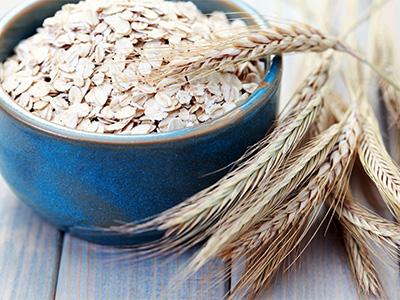Introduction
There is much interest in increasing the market for Scottish food and drink products both from production related stakeholder and the Scottish Government. It will improve food supply-chain resilience and increase the economic performance of the food and drink sector in line with key policy documents such as Good Food Nation and Ambition 2030. International trends such as greater interest from abroad for Scottish products will also aid Scotland Food and Drink in achieving Ambition 2030. Additionally, increasing the market share of consumption of locally-produced healthy food and drink will move population consumption towards sustainable diets helping meet the Scottish Government’s health and sustainability targets.

Aim of Research
This work aims to understand the relationship between Scottish consumption of domestic food and drink products versus imported products; and whether purchases of a particular provenance are due to prices or other reasons. Furthermore there is a need to understand the relationship between Scottish exports and domestic demand for those exported products and to what extent the goals of the Scottish Government of expanding the exporting base are compatible with domestic food security.
Progress
2021 / 2022
One of the main topics of this RD investigated the analysis of domestic versus imported products in the food industry. Indications are that these are complementary not only as regards final products but also in terms of foods for further processing, which are part of food and drink supply chains (e.g., components such as flavours). Moreover, imports are a key part of Scottish food security, and in terms of availability are totally integrated into the UK supply chain.
The analyses of fruits and beef indicated that prices are a key factor in determining consumers’ choices despite their high regard for Scottish products. On domestic supply chains and trade, work was done on the dairy sector. A decrease in the demand for milk for cheese (due to increasing number of imported products) was simulated. The results indicated that the effect is a decrease in the price paid to farmers as well in the supply of milk in Scotland.
A demand analysed for fruits of different origins was produced. Fruits (as well as vegetables) are important components of a healthy diet and Scotland imports a sizable proportion of all fruit consumed. Consequently, changes in the trade situation or in the value of the GBP may have significant changes in the cost of their procurement. In addition, trends in the domestic and international consumption of Scottish food and drink products (i.e., Scottish exports) were studied.
Scottish exports are mainly beef, fish and dairy products and the European Union is the main destination for these. Consequently, there has been considerable disruption due to Brexit. From the imports point of view, Scotland’s market is integrated with the rest of the UK and therefore Scottish consumption depends as much on domestic products as imported products. Moreover, the supply chains in the UK depend on final products as well as products for further processing from the EU therefore Brexit may also be a disruption for the supply of products for the internal market. The work ended with 3 studies: (1) A study on the situation of each UK country and the implications that trading down in quality within a food and drink category has on nutrition motivated by the Brexit context. (2) Work was done on consumers' willingness to pay for sheep meat where trade-offs between provenance and prices were tested. (3) Modelling of food prices in the UK as no Scottish prices were available. Elsewhere agent-based modelling for Scottish trade developed scenarios for exploration using the FeedUs model. These covered dietary change, waste reduction, sustainable intensification and climate change.
2020 / 2021
The work on RD 3.3.1 has progressed well in year 5. It covered two areas: (1) domestic consumption and trade and (2) food security. On domestic consumption and trade, work was produced on consumers response to prices (i.e., trading up and down and nutrition); willingness to pay for several attributes of sheep meat, including provenance and modelling of food prices in order to track potential problems due to COVID-19 and post Brexit sector. In addition, the RD contributed to the WP with an analysis of meat and fish using Kantar Worldpanel data that covered the first part of the lockdown (i.e., Revoredo-Giha and Russo, 2021). The work during the lockdown period was accompanied by the writing of several blogs (see below) on issues such as the functioning of the food supply chain, trade and food standards using datasets assembled in the RD. On food security area, three papers were written on the topic of food security, nutrition and comparing the situation before and after COVID: (a) "Modelling food security: Bridging the gap between the micro and the macro scale"; (b) "Food and nutrition security under global trade – a relation-driven agent-based global trade model" and (c) "UK food and nutrition security during and after the COVID-19 pandemic".
2019 / 2020
The work on the RD 3.3.1 progressed well. On the area of domestic supply chains and trade, work was done on the dairy sector. The briefing "Simulating the impact of changes in importance of dairy products on the Scottish dairy sector" was produced summarising the results obtained in the task. The work done consisted of the formulation and implementation of the model and its simulation. A decrease in the demand for milk for cheese (due to increasing number of imported products) was simulated. The fact that the model considers the demand from different firms was useful because not every firm produces cheddar cheese. As expected, the results indicated that the effect was a decrease in the price paid to farmers as well in the supply of milk in Scotland. These results complemented additional work carried out for the Scottish Government as part of the project “The impact of mandatory written dairy contracts in European countries and their potential application in Scotland” (2018-19).
In addition, it has been predicted that leaving the European Union (Brexit) may bring an increase in food prices. Therefore, the RD started work on the analysis of food prices (this work will continue during year 5). In year 4, detailed databases of prices, trade and production were assembled in order to be used on the modelling to be carried out in year 5. The databases proved useful as they allowed to write two blogs about the effects of the Covid-19 pandemics on the food market situation.
The work on the agent-based model (ABM) on trade has continued and the prototype ABM was be tested using sensitivity analysis, in which key parameters of the model are varied between specified limits and the range of key outputs resulting from this expressed as a fraction of the range in inputs. This allowed to see the parameters of the model the outputs are most sensitive to, so that effort can be put into obtaining the best estimates of their values, as well as providing insight into how the system works.
Highlights
- Research on the effect of prices on nutrient purchases: Joint work between WP3.2 and RD 3.3.1: ‘Trading down in quality and the consumption of minerals and vitamins in the UK’, was contributed to the Family Finance Surveys User Conference, Jun-19, with opportunity for policy transfer, and ‘Using household demographic data to estimate demand for sustainable diets’, was accepted at the Agricultural Economics Society annual conference in Apr-19.
- Addressing meat consumption: A paper, stemming from the last SRP’s engagement with debate on the economic, social and environmental challenges of livestock consumption was been accepted for publication in Appetite: ‘Nudging, formulating new products, and the life course: A qualitative assessment of the viability of three methods for reducing Scottish meat consumption for health, ethical, and environmental reasons’. As part of this a researcher was interviewed on BBC Radio Scotland’s Newsdrive in Dec-19, and the research was also cited in an article in The Times newspaper.
- Understanding changing eating practices across the life-course: A paper from the previous SRP’s work on understanding food choices in Scotland was published in Food, Culture & Society, attracting media interest, and an interview on local commercial radio. This paper reveals that eating patterns acquired in childhood can shape them throughout life. Eating patterns may be more likely to change if the desire for change originates within the individual.
- Consumer trade-offs when buying beef mince: UK Consumers (also Scottish) were found to be willing to pay a higher premium for healthier and more sustainable beef mince than those in Spain. However, customers in both countries were willing to pay more for mince with a low-fat content, and also placed a higher value on products labelled local or national over those marked organic. The study, published in the journal Nutrients, is the first of its kind to investigate how consumers trade-off the fat content of a product against its origin, type of production and the level of greenhouse gas emissions (GHG) produced. The research was referenced in The Scotsman under “Are Scottish shoppers happy to pay more for local minced beef?” in Jan-2020.
- Further funding to understand the effects that marketing has on consumption: Researchers of this RD secured funding in 2019 from the Scottish Government’s Population Health Directorate Health and Social Care Analysis to carry out the study “Economic modelling: reducing health harms of foods high in fat, sugar or salt”. The final report was submitted in March 2020.
- Study on the impact of the introduction of mandatory contracts in the dairy sector: Researchers of this RD obtained funding in 2018 from the Scottish Government to carry out the study “The impact of mandatory written dairy contracts in European countries and their potential application in Scotland”, which was published in 2019 and is cited in Defra’s Consultation: ‘Contractual relationships in the UK dairy industry’ launched in June 2020.
2018 / 2019
Modelling work has included the trade-offs between domestic sales and trade using beef as a case study. Using information collected in years 1 and 2, a relatively simple (due to the limitations of the data available) partial equilibrium model was formulated (i.e. a model that considers the equilibrium of a few markets in contrast to general equilibrium models that consider all the markets in an economy). This model was produced using positive mathematical programming (PMP) and demand for Scottish beef. The model was implemented in Excel using Visual Basic and the Excel optimization solver. The model obtained is a first version and still requires improvements. The major difficulty has been the lack of adequate statistics to map the retail and wholesale stages. This will be overcome by aggregating the different beef cuts and computing the base price (the observed price is made of a base price plus a margin by type of cut). The model will be used to understand the effect of changes in prices of imported beef on domestic demand.
Through collaborations with the DEVIL project, scenarios have been developed for the agent-based model to explore using the ‘FeedUs’ model. The scenarios cover dietary change, waste reduction, sustainable intensification and climate change. The data underpinning these scenarios have been sourced from the literature and converted into inputs to the model allowing the scenarios to be simulated.
2017 / 2018
The demand analysis on fruits from different origins was completed and indicated that prices are important but the availability largely determines the demand for imported fruits. Analysis on the demand for Scottish beef revealed that prices are also important and consumers clearly prefer beef from Scotland however this did not translate into purchases.
2016 / 2017
The research has analysed the demand for fruits from different geographical origins and has looked at export trends (i.e., the interest of importers of Scottish products) along the supply chain and whether or not export negatively affects domestic consumption. Year 1 has also involved setting up frameworks that will enable research in year 2. This includes incorporating country of origin data into Kantar Worldpanel database, and developing and running a questionnaire on consumers attitudes and preferences for local produce. Furthermore modelling has allowed information on the drivers and trends of the different demands on import requirements to be gathered.
Future Activities
The work covered in this RD on consumption, trade, supply chains and food security will continue in the 2022-2027 SRP in several projects that are part of topics B4 (Food supply and security) and B5 (Food and drink improvements). In particular, RI-B4-1 (Building food and nutrition security in Scotland), SRUC-B4-1 (Issues related to the demand of fruits and vegetables in Scotland), SRUC-B4-3 (Understanding the mismatch between domestic consumption and production in Scotland), SRUC-B5-1 (Mapping major supply chains within the Scottish food and drink industry) and RI-B5-4 (Understanding the Scottish food supply chain).
Selected Outputs
Publications and other outputs
2016/17
Does fair trade compete with carbon footprint and organic attributes in the eyes of consumers? Results from a pilot study in Scotland, the Netherlands and France. (2016) – paper published in the Journal of Agricultural and Environmental Ethics by Faical Akaichi et al.
Differences in expenditure and amounts of fresh foods, fruits and vegetables, and fish purchased in urban and rural Scotland. (2017) – paper published in Public Health Nutrition by Baukje de Roos et al.
2017/18
The Demand for Fresh Fruits in Scotland: Potential Implications from Brexit (2017) – paper published in the Journal of International Food & Agribusiness Marketing by Cesar Revoredo-Giha & Costa-Font
An empirical analysis of UK milk contract prices 2004-16 (2017) – paper published in Agribusiness by Montserrat Costa-Font & Revoredo-Giha
Simulating the Impact of Carbon Taxes on Greenhouse Gas Emission and Nutrition in the UK (2018) – paper published in Sustainability by Cesar Revoredo-Giha et al.
2018/19
Attitudes towards, and purchasing of, Scottish beef and beef products in Scotland–A short communication. (2018) – paper published in Meat Science by Stephen Whybrow & Jennie Macdiarmid
Farmers’ spending on variable inputs tends to maximise crop yields, not profit (2018) – paper published in the International Journal of Agricultural Management by Mark Reader et al.
Could Animal Welfare Claims and Nutritional Information Boost the Demand for Organic Meat? Evidence from Non-hypothetical Experimental Auctions. (2019) – paper published in the Journal of Cleaner Production by Faical Akaichi et al.
2019/20
How consumers in the UK and Spain value the coexistence of the claims low fat, local, organic, and low greenhouse gas emissions? (2019) - paper published in Nutrients by Faical Akaichi et al.
Trading on Food Quality due to Changes in Prices: Are There Any Nutritional Effects? (2019) – paper published in Nutrients by Cesar Revoredo-Giha et al.
Could Animal Welfare Claims and Nutritional Information Boost the Demand for Organic Meat? Evidence from Non-hypothetical Experimental Auctions. (2019) - paper published in the Journal of Cleaner Production by Faical Akaichi et al.
2020/21
Modelling food security: Bridging the gap between the micro and the macro scale. (2020) – paper published in Global Environmental Change by Kreuer et al,
UK food and nutrition security during and after the COVID‐19 pandemic (2021) – paper published in Nutrition Bulletin by Lozada-Ellison et al
Food and nutrition security under global trade: a relation-driven agent-based global trade model. (2021) – paper published in Royal Society open science by Aphale et al
Nutritional and environmental assessment of increasing the content fruit and vegetables in the UK diet (2021) – paper published in Sustainability by Dogbe and Revoredo-Giha
Nutritional implications of trade-offs between fresh and processed potato products in the United Kingdom (UK). (2021) – paper published in Frontiers in Nutrition by Dogbe and Revoredo-Giha
Presentations
Presentation at the Scottish Funding Council Trading Up or Down on Food and Drink Product Quality due to Changes in Prices: What are the implications for Nutrition? (September 2019)
Institute of History Research (IHR) Food History Seminar An evolution of the consumption of sweet discretionary products in Scotland (December 2020)
94th annual conference of the Agricultural Economics Society Consumers' reaction to organic meats in Great Britain during the COVID-19 pandemic (March 2021)
94th annual conference of the Agricultural Economics Society Food prices in Scottish remote areas: are they higher than average prices? (April 2020)
Blogs
How UK food and drink exports to EU and non-EU countries have evolved over time - a blog post in the LSE Business Review, March 2021
Should food standards be left to the market in post-Brexit Britain? - a blog post in the LSE Business Review, November 2020
The UK economy is recovering from the pandemic shock but not all is rosy - a blog post in the LSE Business Review, September 2020
What can we expect from a ban on junk food price promotions?. a blog post in the LSE Business Review, August 2020
The UK’s fresh produce supply under Covid-19 and a no-deal Brexit - a blog post in the LSE Business Review, June 2020
2021/22
Peer-reviewed publications
Purchases of meats and fish in Great Britain during the Covid-19 lockdown period. (2021) – paper published in Frontiers in Nutrition by Revordeo-Giha and Russo.
Bundling Food Labels: What Role Could the Labels “Organic”, “Local” and “Low Fat” Play in Fostering the Demand for Animal-Friendly Meat. (2022) – paper published in Agribusiness by Akaichi et al.
Industry levy versus banning promotion on soft drinks in Scotland: A distributional analysis. (2021) – paper published in Food Policy by Dogbe and Reverodo-Giha
The Market for Organic Food in the UK. (2021) – paper published in Eurochoices by Revoredo-Giha and Gschwandtner
Nutritional and environmental assessment of increasing the content fruit and vegetables in the UK diet (2021) - paper published in Sustainability by Dogbe and Revoredo-Giha
Presentations, reports, blogs
Report ‘Economic modelling: reducing health harms of foods high in fat, sugar or salt published on the Scottish Government website.
Theme researchers presented papers to the XVI Congress of the European Association of Agricultural Economists (Jul-21), addressing consumers’ preferences and willingness to pay for organic chicken, the impact of restricting the advertising of promotions of foods high in fat, sugar or salt, and ‘Food Prices in Scottish Remote Rural Areas: Measuring and Explaining the ‘Remoteness Premium’.
Producer price inflation for food and drink: the role of fuel hikes and the war in Ukraine. – a blog post in the LSE Business Review, April 4th 2022
Banning the promotion of soft drinks could be more effective than a sugar tax. – a blog post in The Conversation February 18, 2022.
The road to recovery for the food and drink sector. - a blog post in the LSE Business Review, November 3rd, 2021
The British are eating less red meat and consuming more processed food. - a blog post in the LSE Business Review, October 15th, 2021.
How to delink the UK’s soybean imports and livestock supply chains from deforestation in the Amazon. - a blog post in the LSE Business Review, August 26th, 2021
Upbeat news about the UK organic food market can be misleading. - a blog post in the LSE Business Review, June 14th, 2021




